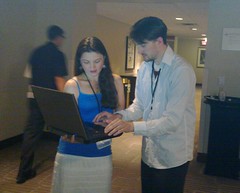Our research in 2017: personal scientific highlights
In my opinion the scientific highlights of 2017 for my team were on multivariate predictive analysis for brain imaging: a brain decoder more efficient and faster than alternatives, improvement clinical predictions by predicting jointly multiple traits of subjects, decoding based on the raw time-series of brain activity, and a personnal …





